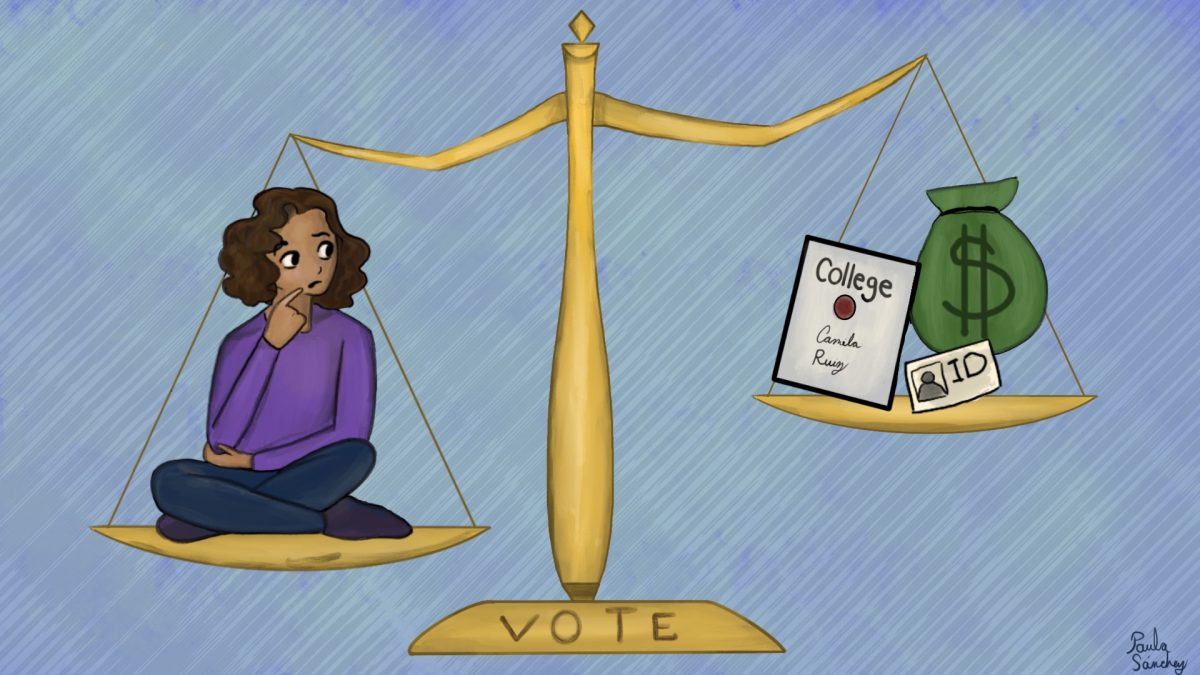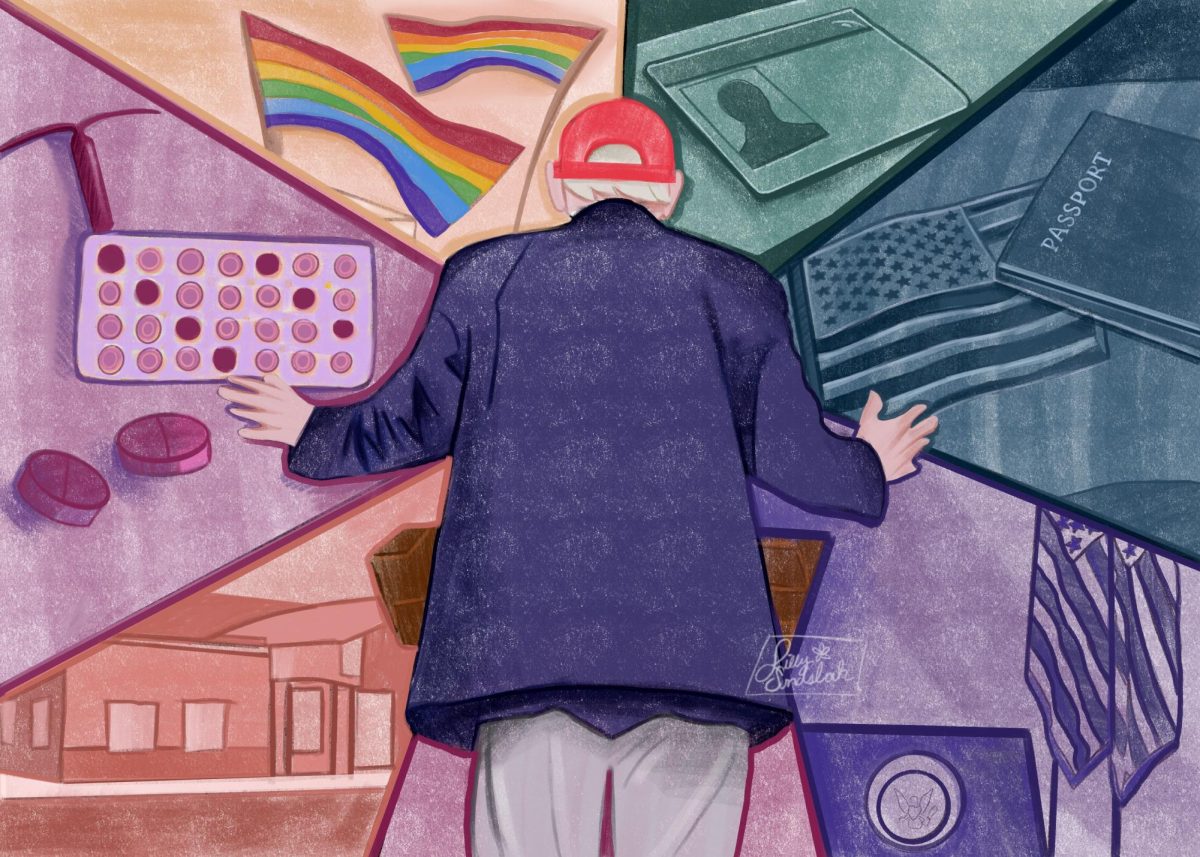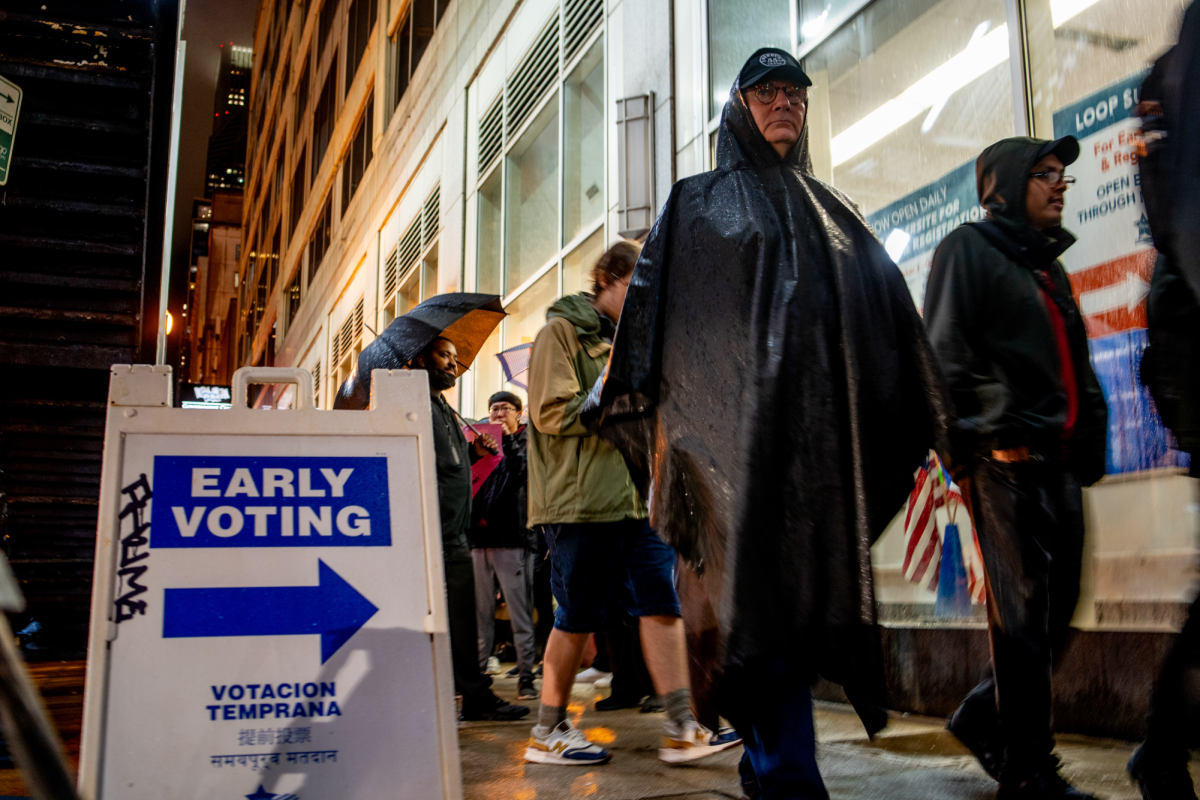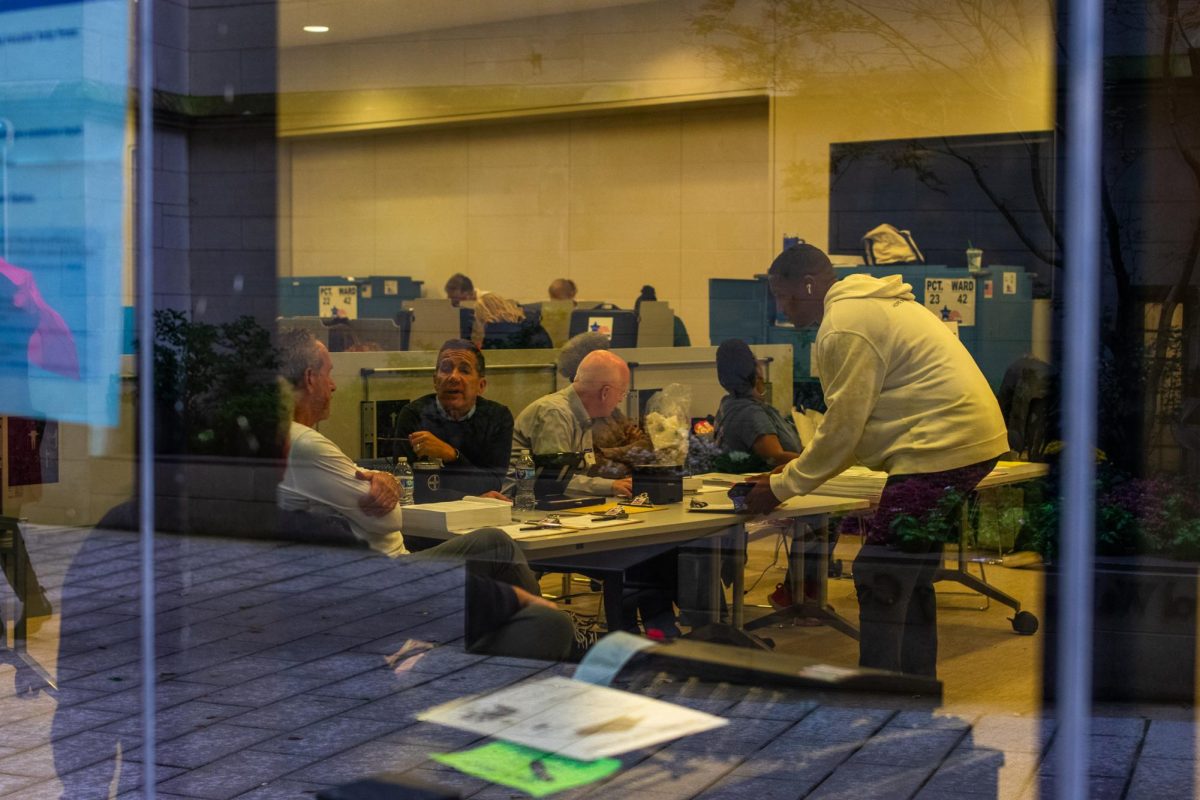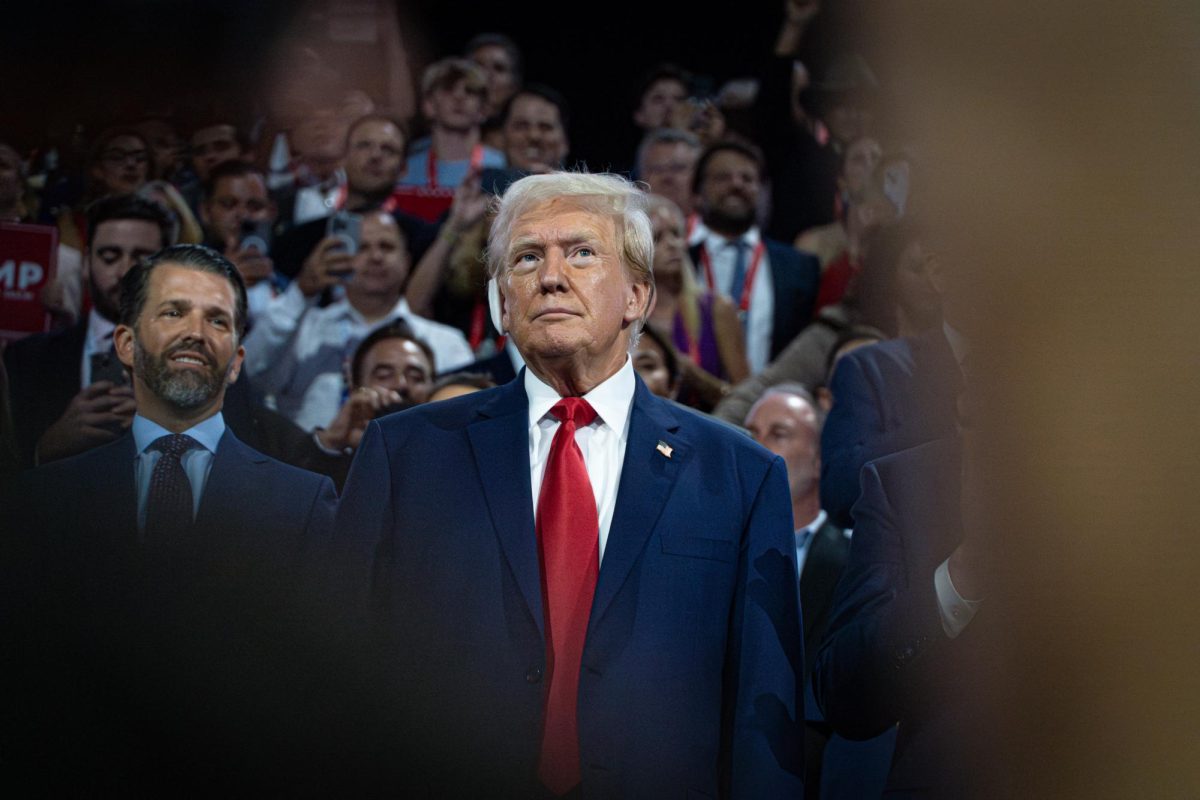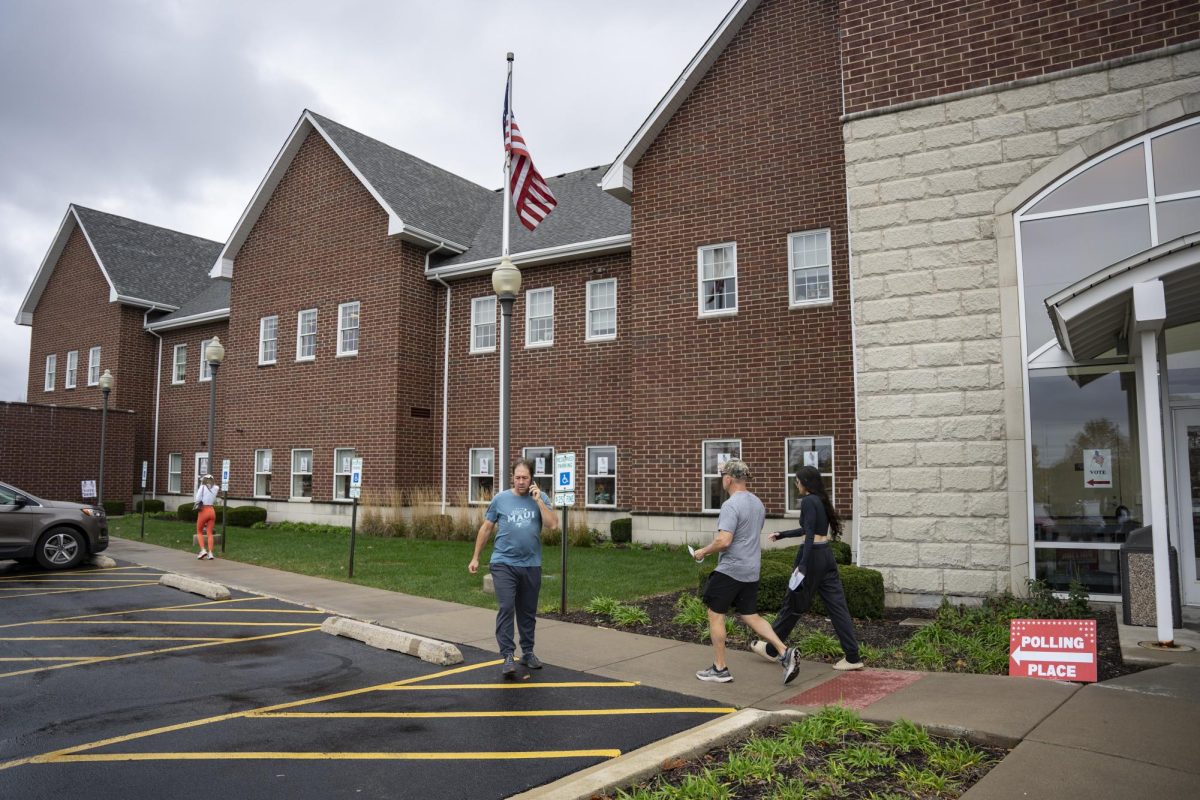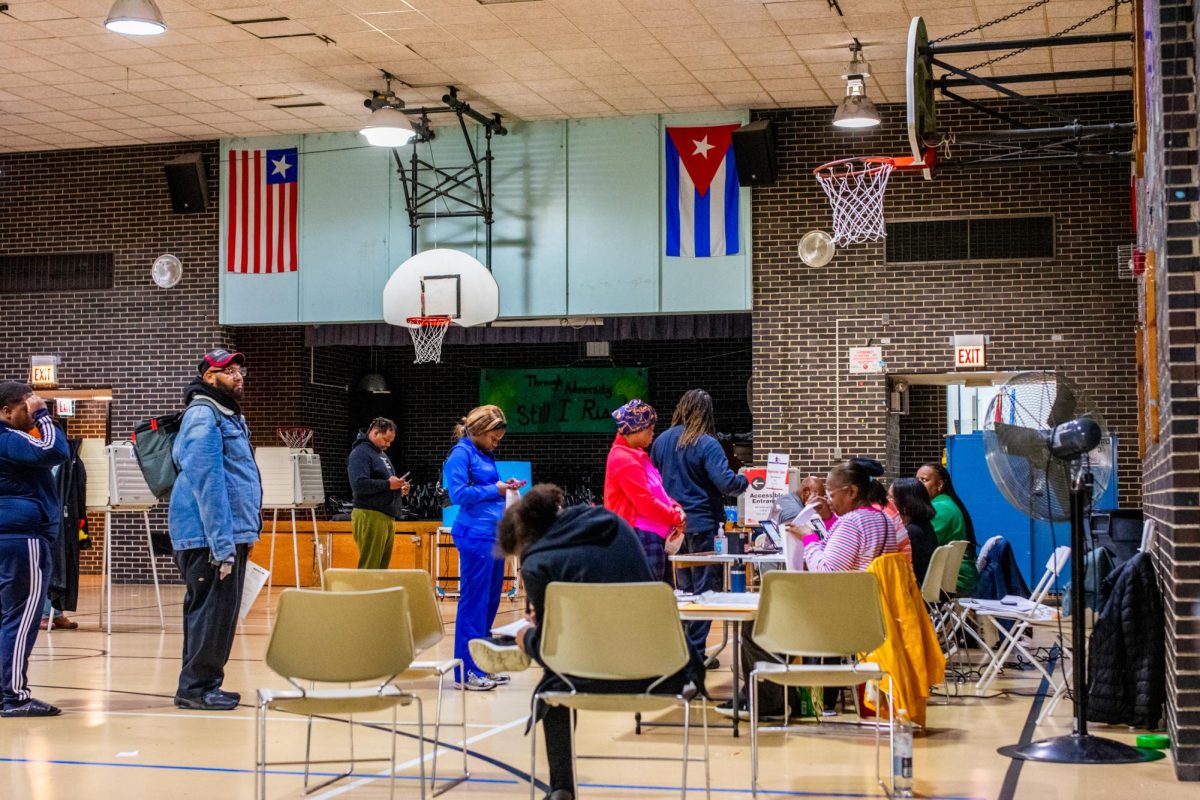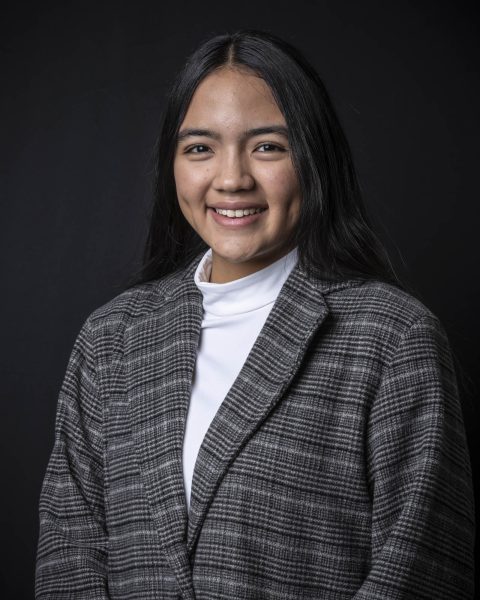Josefina Medrano, a sophomore communication major, recalled the day when her mother registered to vote. It was a moment of pride for the family, but despite this, the voter card has been untouched for every election cycle.
“She just doesn’t understand the importance of it,” said Medrano. Her mother, Medrano believes, doesn’t comprehend the importance of voting and politics in general.
The Latino voting bloc, especially in Chicago, is a sizable and important one, even though it faces barriers for people like Medrano’s mother. An estimated 36.2 million Latinos in the U.S. are eligible to vote this year, up from 32.3 million in 2020, according to the Pew Research Center. Since the last election, the number of eligible Latino voters has grown at the second-fastest rate of any major racial and ethnic group in the U.S. after Asians.
Both presidential candidates have been courting Latino voters in the last days of the campaign, which has Democratic candidate and Vice President Kamala Harris in a statistical tie with Republican candidate and former President Donald Trump.
Harris leads Trump by four points, 51%-47%, in an ABC/Ipsos poll of likely voters released Sunday, Oct. 27. An Emerson College Polling survey released Saturday, Oct. 26 has the two candidates tied at 49%.
Trump has pledged to continue deportations and reverse what he called Democratic “open border policies.”
Harris has said she would strengthen security at the border but also include an “an earned pathway to citizenship.”
Latino voters told the Chronicle that immigration, citizenship and the economy are key issues for them. The economy and immigration are top issues overall for most voters, according to Pew.
Marcelo Sabates, a Columbia professor who teaches philosophy, ethics and Latin American studies, said that political behavior and ideals vary on factors such as experiences and national origin.
Those factors influence the “issues that are important to everybody,” said Sabates.
Sabates said that possible reasons originate from language barriers to the governmental difference from being in a new country.
He also said that while there is some information available, due to the barriers, “you have to make an extra effort to find them many times,” said Sabates.
Despite this, he said he has noticed the Latino community become increasingly involved in politics over time.
UnidosUS Action Network reported an increase in Latino registration and voting nationally through every following presidential election since 2000.
In the 2016 Presidential Election, about 15 million of Latinos were registered to vote while 83% of the group did vote. For the 2020 Presidential Election, nearly 19 million were registered while 88% of those actually voted.
Student debt is another issue that many Latino students care about.
Laurel Peralta, a sophomore audio arts and acoustics major, said that he is attending Columbia with a full-ride scholarship.
“Any opportunity that came by, I had to, I just took it,” Peralta said.
First-year music major Colin Reyes didn’t receive full tuition coverage from financial aid and worked to support himself financially as his parents weren’t able to assist.
“I’m overdrafted and stuff adds up so quickly because you have tuition, phone payments and other stuff I’ve been paying off,” said Reyes.
The Education Data Initiative reported that 67% of Hispanic graduates left college with educational debt with 56% still paying and 20% behind on payments.
Harris’s campaign website has stated that if elected president, she will work “so that college can be a ticket to the middle class.”
Trump has pledged to support “more affordable alternatives to a traditional four-year college degree.”
The citizenship process is also a key point to Peralta. He said the process was long and while it had requirements such as sponsors and a fee, those requirements would continue increasing.
“For two years we were running back and forth like chickens without their heads,” said Peralta.
Medrano said that while she is concerned about local issues and local elections, she also wants the stigma around immigrants to end.
Throughout the campaign, Trump has portrayed the Latino community negatively. At his rally in New York on Oct. 28, comedian Tony Hinchcliffe referred to Puerto Rico as a “floating island of garbage.”
“That’s definitely not true. So I would like that to change,” said Medrano.
Copy edited by Manuel Nocera


